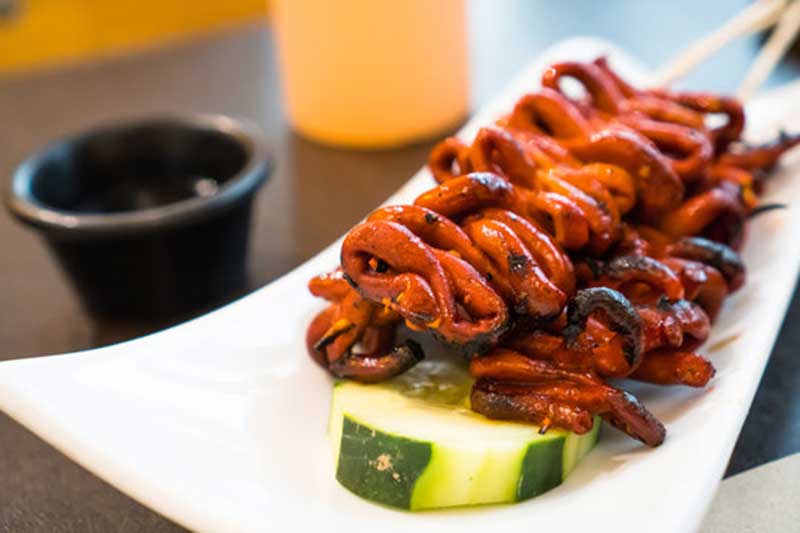Unveiling the Irresistible Isaw Delicacy
The Origins of Isaw
From Humble Beginnings to Culinary Star
Isaw, a popular street food in the Philippines, has humble origins that trace back to traditional barbecues. The term “Isaw” itself means intestines, reflecting the primary ingredient used in this dish. Initially, Isaw was considered a poor man’s food, utilizing overlooked parts of the animal.Evolution through Creativity
Over time, culinary creativity took over, and Isaw transformed from a mere survival dish into a delectable culinary delight. Vendors began marinating and grilling the intestines to perfection, infusing them with a variety of flavors and seasonings, thus elevating Isaw to a beloved delicacy.
The Art of Preparation
Selecting the Finest Ingredients
Creating the perfect Isaw requires choosing fresh and clean animal intestines. Vendors pay special attention to cleaning and preparing the intestines to eliminate any unwanted odors or flavors.Marination Magic
Marination is a crucial step in the Isaw preparation process. The intestines are marinated in a blend of savory spices, vinegar, soy sauce, and other secret ingredients. This infusion of flavors not only masks any lingering undesirable tastes but also imparts a mouthwatering essence that makes Isaw truly irresistible.Grilling to Perfection
From Raw to Charred Goodness
The marinated Isaw is then skillfully threaded onto skewers and grilled over an open flame. The heat of the grill transforms the once-raw delicacy into a smoky, charred masterpiece. The grilling process caramelizes the marinade, creating a harmonious blend of flavors that beckons to be savored.
The Burst of Flavors
A Symphony for the Palate
The first bite of Isaw is an explosion of flavors. The smokiness from the grill mingles with the tanginess of the marinade, creating a symphony that dances on the palate. The slight crunch of the charred exterior gives way to a tender and succulent interior, ensuring a delightful contrast in every bite.A Street Food Sensation
Isaw’s Enduring Popularity
Isaw’s journey from a frugal dish to a sensation among street food lovers is a testament to its irresistible taste. Found in various corners of the Philippines, from bustling markets to roadside stalls, Isaw continues to win hearts with its affordable price and unparalleled flavors.Why Isaw Is Irresistible
The Perfect Combination
Isaw’s appeal lies in its perfect combination of simplicity and complexity. Despite its modest origins, the intricate blend of marinade and grilling techniques results in a unique and unforgettable taste that appeals to a wide range of palates.A Social Experience
Eating Isaw is not just about the food itself; it’s also about the experience. Sharing skewers of Isaw with friends and family fosters a sense of togetherness and camaraderie, making it a beloved part of Filipino culture.Exploring Hakarl: Iceland’s Unique Fermented Shark Dish
Conclusion
In conclusion, the journey of Isaw from its humble beginnings to a sought-after delicacy is a testament to the power of culinary innovation. Its flavors, born from the marriage of marination and grilling, create a sensory experience that is both irresistible and unforgettable. So, if you’re ever in the Philippines, don’t miss the chance to indulge in the mouthwatering delight that is Isaw.Are There Any Similarities Between the Origins of the Dry Martini and Isaw Delicacy?
The origins of the dry martini and the delicacy known as isaw may seem worlds apart, but they surprisingly share a common thread. Both have intriguing origin stories that have been passed down through generations. While the dry martini has its roots in the United States, isaw finds its origin in the Philippines. Despite their differences in taste and cultural associations, these two delicacies continue to captivate and entice food enthusiasts worldwide.












